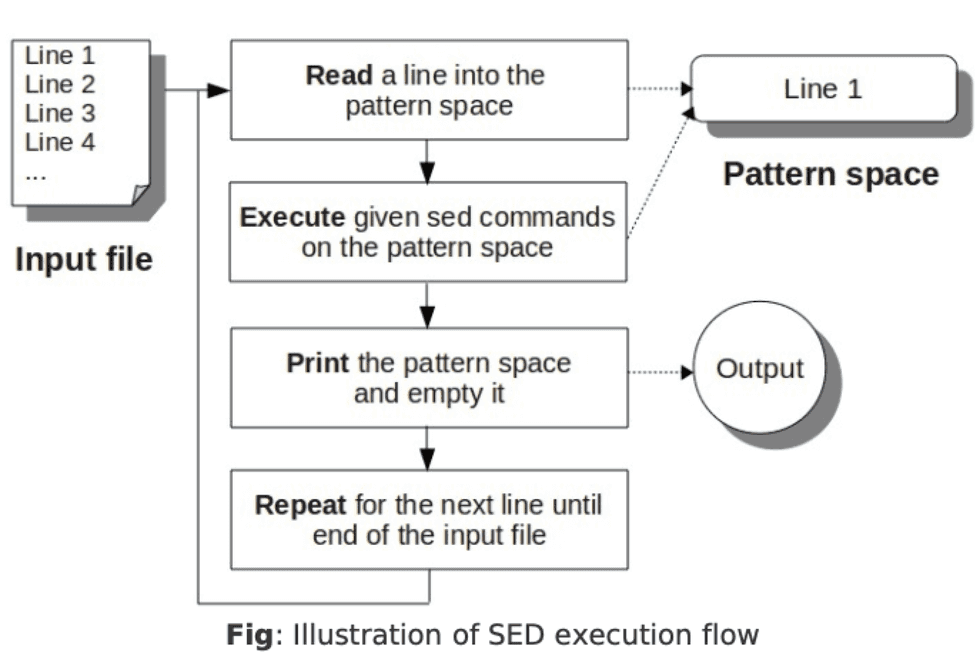Flow
Sed Command Syntax
sed [options] {sed-commands} {input-file}-f to combine multiple sed-commands ina file and call the sed script file
sed [options] -f {sed-commands-in-a-file} {input-file}-e to execute multiple sed commands in command line.
sed [options] -e {sed-command-1} -e {sed-command-2} {input-file}Execute multiple sed commands in command line using {}
sed [options] '{
sed-command-1
sed-command-2
}' {input-file}Sed never modifies the original file. Use
>to redirect output to a file at the end.
Print Pattern Space (p command)
p command prints the current pattern space to stdout.
sed -n 'p' /etc/passwd-n to silent output for the read line in each cycle. Without this, every line will be output twice.
Print only the 2nd line:
sed -n '2 p' employee.txt,: Print line 1 through line 4:
sed -n '1,4 p' employee.txt$: represents the last line:
sed -n '4,$ p' employee.txt+: used in conjunction with the comma, to specify a number of lines instead of an absolute line number.
sed -n '1,+3' emplyee.txt~: step
sed -n '1~2 p' emplyee.txt # => print line 1, 3, 5, 7...Pattern Matching
Print lines matching the pattern "Jane":
sed -n '/Jane/ p' employee.txtPrint lines starting from the 1st match of "Jason" UNTIL the 4th line:
$ sed -n '/Jason/,4 p' employee.txt
102,Jason Smith,IT Manager
103,Raj Reddy,Sysadmin
14,Anand Ram,DeveloperIf there were no matches for "Jason" in the 1st 4 lines, this command would print the lines that match "Jason" after the 4th line.
Print lines starting from the line matching "Raj" until the line matching "Jane"
sed -n '/Raj/,/Jane/ p' employee.txtDelete Lines (d command)
Conceptional similar to
pcommand, pattern matching then DON'T output the matching line(s)
Delete all the empty lines from a file:
sed '/^$/ d' employee.txtDelete all comment lines(assuming the comment starts with #)
sed '/^#/ d' employee.txtWrite Pattern Spae to File (w command)
Write the content of employee.txt file to file output.txt (and display on screen, -n option can disable the screen printing).
sed 'w output.txt' employee.txtWith pattern matching:
sed '1,4 w output.txt' employee.txt
>can be a replacement of thiswcommand
